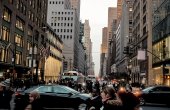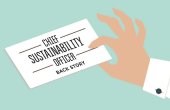Welcome to the Sustainable City Podcast

The world is urbanizing at an unprecedented pace. Sixty to 70 million people will be moving to cities each year over the next few decades as the globe’s population approaches 10 billion. Experts estimate we’ll need to invest $90 trillion in global infrastructure in the next 15 years just to keep up. The numbers alone are staggering.
Meanwhile, in the U.S., we expect to add another 100 million residents by 2050. And like the rest of the planet, our cities are where the action is, driven by a demand for transit-oriented, mixed-use neighborhoods and a growing commitment to climate protection and community resilience.

We’ve been working in the human habitat, at the intersection of urban development and sustainability, for the past three decades and believe it is here, where these two forces meet, that nothing less than the fate of both people and the planet is at stake. Flourish or fail? Create or collapse? The choice is ours. The time is now.
We started this podcast to have conversations with others who feel like we do, who have seen the statistics and read the reports and decided to do something, to jump into the arena, to pursue a vision of a better, greener urban future, a more sustainable and just human habitat.
We invite you to join us as we discuss bold ideas and innovations for green, equitable, and climate-friendly cities with the people making them happen, here and abroad. The Sustainable City podcast will address critical questions like, How do we build a zero-carbon city? In an automobile-obsessed culture, and with electric vehicles on the march, are car-free communities even possible in the U.S.? And, do green cities inevitably mean gentrified cities, only for the rich?
We’ll be releasing a new episode on the first Monday of each month, so be sure to subscribe on Apple Podcasts, Soundcloud, Amazon, Spotify, or wherever you listen to your podcasts.
Have questions or comments? You can reach us at sustainablecityshow@gmail.com.
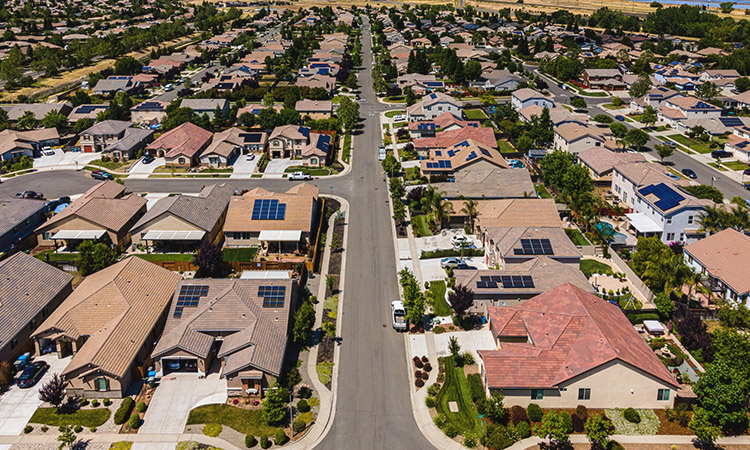
We examine California’s audacious state-wide effort to deconstruct single-family zoning to allow for more diverse housing options, promote affordability and reduce greenhouse gas emissions from long commutes. Cutting-edge or calamity? Our guest is Conor Dougherty, economics reporter at The New York Times and the author of “Golden Gates: Fighting for Housing in America.”

Ep. 2: Zero-Carbon: From Buildings to Cities
We discuss the ways cities, developers, and property owners can swap out fossil fuels for renewable, zero-carbon energy sources to power their buildings and communities. Our guest is Josh Radoff, former Senior Vice President for Built Environment Sustainability at WSP and faculty lead in Renewable and Sustainable Energy in the Masters of the Environment program at the University of Colorado Boulder.

Ep. 3: Creating Car-Free Communities
Cities around the world are trying to find ways to reclaim their streets for people, for walking, biking, and scootering from point to point. The goal is to make cities safer, cleaner, and more fun while reducing or eliminating altogether the number of cars and trucks that have dominated urban landscapes for almost a century. We talk to the Lord Mayor of Heidelberg, Germany, Dr. Eckart Wurzner, about his city’s efforts to create a car-free community, and Chris Shears, an urban designer and planner who has long advocated for transit-oriented, infill development to move Americans beyond auto-dependence.
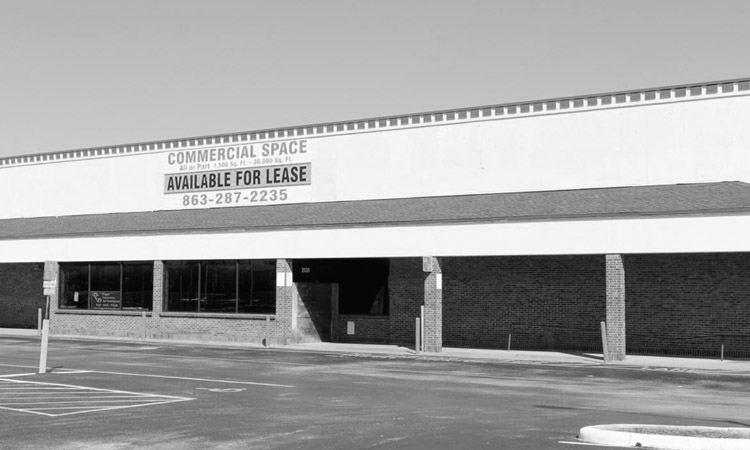
Renowned urban designer and planner Peter Calthorpe joins us to discuss his big idea for making California, and the rest of the nation, more sustainable. He calls it “Reinventing the strip.” Calthorpe is a founding member of the Congress for the New Urbanism and author of several books, including “Sustainable Communities,” “The Next American Metropolis,” “The Regional City: Planning for the End of Sprawl,” and “Urbanism in the Age of Climate Change.”
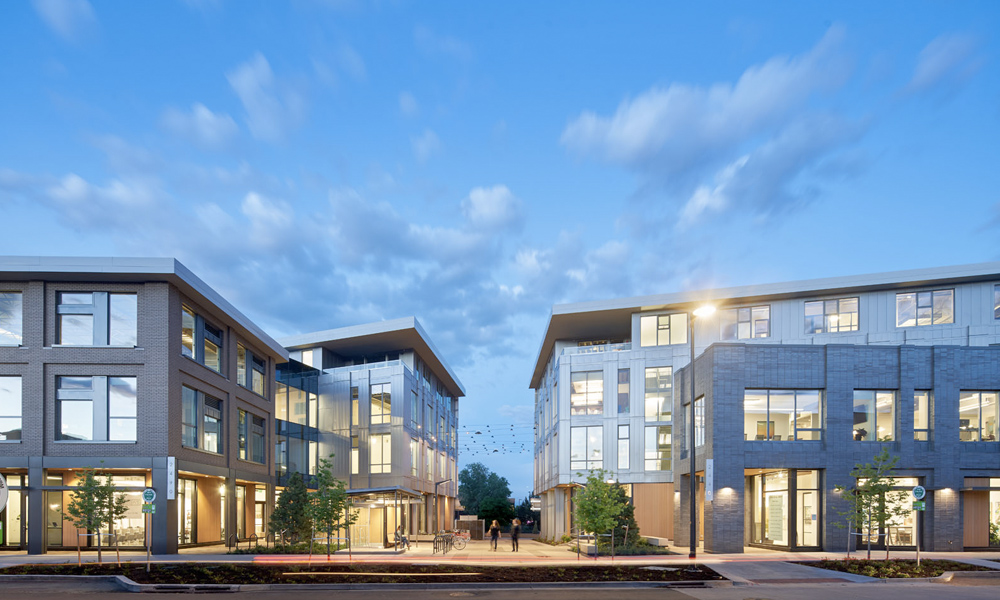
Ep. 5: Sustainability and Wellness in the Built Environment
We look at sustainability, health, and wellness in buildings and real estate. Beyond a zero-carbon built environment, what other goals should we be aiming for in creating better, greener, more inclusive cities? And how do we get there? Our guests are Brad Jacobson, Principal at EHDD, a San Francisco-based architecture firm leading the way towards a carbon-neutral built environment, and Alaina Ladner, who heads the sustainability practice at JLL’s Project & Development Services in the West.
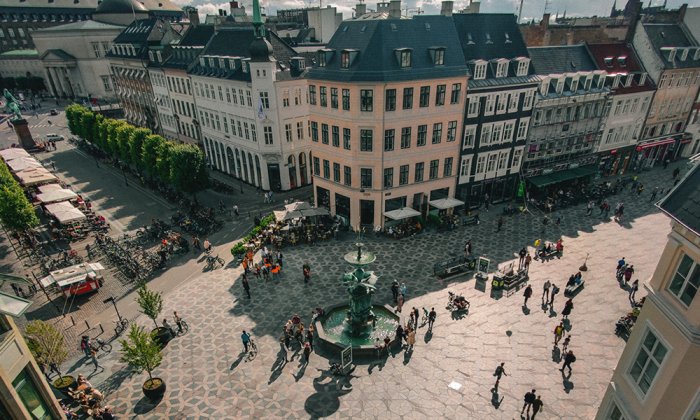
Ep. 6: Achieving Our Climate Goals: The Land Use-Transportation Nexus
Rushad Nanavatty, Managing Director and lead of the Rocky Mountain Institute’s Urban Transformation program, and Ben Holland, Senior Associate and Policy Liaison at RMI, join us to explore the connection between transportation and land use, and how each affects our ability to achieve our climate goals, from commuting to street design to electric vehicles.
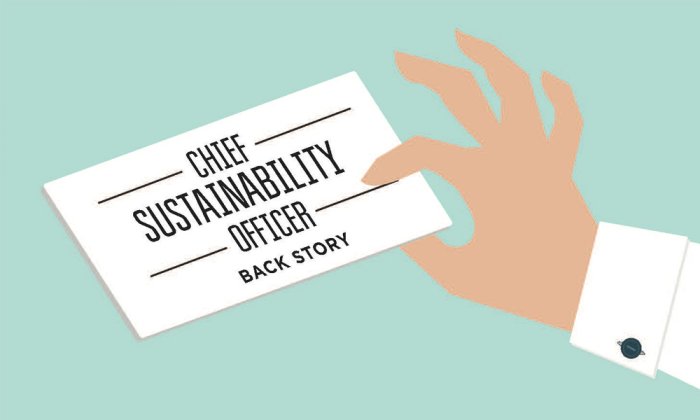
Ep. 7: The Role of the Chief Sustainability/Climate/Resilience Officer in U.S. Cities
Until just over a decade ago, there was no such thing as a Sustainability Director or Chief Resilience Officer for cities. Now, cities feel incomplete without them. What are these jobs and why are they so essential to achieving urban sustainability goals? We pose these questions to our guests, Melanie Nutter, former Director of San Francisco’s Department of Environment, and Susie Strife, Director of the Office of Sustainability, Climate Action and Resilience for Boulder County, Colorado.
Ep. 8: Investing in Sustainable Cities: Purpose and Profitability
Money makes the world go ‘round, and what it doesn’t ruin it can nurture. This month, we talk about the role of investment and finance in advancing nature-friendly, equitable communities. From zero-carbon buildings and green roofs to EV charging stations and bike sharing, sustainable cities require a host of new technologies, infrastructure and sophisticated designs. Who pays for this, and who profits? What kinds of opportunities afford the greatest returns, not only financial, but environmental and social? Joining us to discuss money and sustainable cities are Stuart Bernstein, founder of Sustainable Capital LLC and a 30-year veteran of Goldman Sachs, and Paul Rabinovitch, Principal of Real Estate at New Island Capital, a leading impact investment firm.
Ep. 9: Gray to Green Communities: In Conversation with Dana Bourland
In her new book, “Gray to Green Communities,” Dana Bourland argues that we need to move away from a grayhousing model to a green one, which values the health and well-being of residents, their communities, and the planet. Dana shows that we don’t have to choose between protecting our environment and providing quality housing for all. How can we achieve both climate goals and housing equity when residential buildings alone account for 20 percent of our carbon emissions? What are the inevitable trade-offs and challenges we need to address? And where are the success stories we can turn to for inspiration and guidance? We talk to Dana about these questions and the promise of her Gray to Green approach.
Ep. 10: The Connecticut Case: Sara Bronin on Zoning Reform and Desegregation in the Nutmeg State
Law and urban planning professor Sara Bronin founded Desegregate CT to transform Connecticut’s zoning laws from tools for racial exclusion to instruments of social change and sustainability. Widely viewed as the poster child of the “suburban state,” whose old, industrial cities and communities of color have suffered decades of neglect and disinvestment, Connecticut is wising up. Bronin thinks her state can teach the rest of us something useful, even visionary, about how to build sustainable, equitable communities through land use and zoning reform.
Sara Bronin is a Mexican-American architect and attorney whose interdisciplinary research focuses on how law and policy can foster more equitable, sustainable, well-designed, and connected places. She is a Professor of the Cornell College of Architecture, Art, and Planning, an Associated Faculty Member of the Cornell Law School, the Director of the Legal Constructs Lab, and a Faculty Fellow of the Cornell Atkinson Center for Sustainability. As a leading voice on historic preservation law and related land use practices, Bronin was recently nominated by the Biden administration to chair the U.S. Advisory Council on Historic Preservation. Bronin has written over two dozen articles on renewable energy, climate change, housing, urban planning, transportation, real estate development, and federalism. Her forthcoming book, “Key to the City” (W.W. Norton), will explore how zoning rules rule our lives. Through the Legal Constructs Lab, she created the National Zoning Atlas to translate and standardize tens of thousands of zoning codes across the country. She has advised the National Trust for Historic Preservation and Sustainable Development Code, has served on the board of Latinos in Heritage Conservation, and founded Desegregate Connecticut.
Ep. 11: Sheila Foster on Co-Cities and a New Model of Urban Governance
This month, we talk to Sheila Foster, a professor of urban law and policy at Georgetown University and co-director of LabGov, an international applied research project that has pioneered a new model of urban governance and a path toward more equitable management of a city’s infrastructure and services.
In her new book, “Co-Cities: Innovative Transitions toward Just and Self-Sustaining Communities,” and in the discussion that follows, Foster describes the practices, laws, and policies that are fostering urban innovation, from providing urban services like transit and parks, to spurring collaborative economies, to promoting inclusive and equitable redevelopment of blighted city lots. As Sheila and her co-author Christian Iaione explain, the majority of the world’s population live in cities, but despite the wealth cities have created, their most vulnerable residents still live without adequate housing, safe water, healthy food, or other essentials. Nonetheless, Foster argues, cities can still remedy the inequalities they create. These are co-cities.
Ep. 12: Pete Plastrik on Social Innovation and Sustainable Cities
For this episode, we welcome Pete Plastrik. Plastrik is cofounder and vice president of the Innovation Network for Communities, was a founding consultant to the Carbon Neutral Cities Alliance and has worked closely with the Urban Sustainability Directors Network since its inception in 2008. Pete has also been the lead author on several national reports about cities and climate change and co-wrote the book “Life After Carbon: The Next Global Transformation of Cities” in 2018.
Pete’s most recent book, “Connect, Innovate, Scale: How Network’s Create Systems Change,” with John Cleveland and Madeline Taylor, looks at over 20 case studies of people and programs, embedded in what Pete calls “networks,” that are actually, in Pete’s view, changing the world, that are making our places and our planet greener, juster and better in a discernible, measurable way. We invited Pete to share his knowledge about and experience with cities and with these changemakers, the social innovators and social innovations that are having a real and positive impact on urban living today and what the future of cities, and the planet as a whole, might look like.
Ep. 13: Home, Office, Climate, Cities: What’s Ahead?
For this episode and the foreseeable future, we’re experimenting with a new podcast format, less linear, less binary, more conversational, informal, improvisational. We intend to focus on issues both of the moment and bigger picture, longer term, all related somehow to sustainable cities, this podcast’s soul’s purpose. We’ll still do more conventional episodes, with special guests, but will also mix it up with our alternative format.
To help on this new leg of our podcast journey, we have an additional cohost, Devon Bertram, in lieu of a guest. Devon’s an old friend and OG in the sustainable built environment field, about 20 years worth. She’s the VP of Sustainability Consulting at Stok, where she advises clients on how to define, develop, implement, and manage sustainability programs and standards for their building portfolios that align with their corporate brand, values, and purpose.
Appropriately, given our new format, we figured we’d focus this episode on the topic of the “new work,” work from home, hybrid, return to the office and other matters, like essential workers — hospital staff, janitors, sanitation workers, police — who, no matter what the office plan du jour, have to show up somewhere in physical form. There are no alternatives.
And what about climate change and the huge impact our commuter patterns have on GHG emissions? Transportation is now the largest source of carbon emission in the U.S., bigger than the energy sector, or buildings. It therefore stands to reason, and climate science, that reducing our vehicle miles traveled to and from work (the overwhelming majority of which are by automobile, not trains or buses, let alone electric ones powered by a clean grid) ought to be a priority climate mitigation strategy. It isn’t.
And will office/commercial real estate owners and brokers sit idly by as they watch their tenants opt-out and their office parks wither?
We’re delighted to welcome Devon and to jump into our new format. We hope you enjoy it.
Ep. 14: Noah Gallagher Shannon on Sustainable Living and the Uruguay Example
In his at once inspiring and dispiriting piece in the New York Times Magazine from November 2022 entitled “What Does Sustainable Living Look Like? Maybe Like Uruguay,” Noah Gallagher Shannon writes:
This is the paradox at the heart of climate change: We’ve burned far too many fossil fuels to go on living as we have, but we’ve also never learned to live well without them. . . . [T]he problem of the future is how to create a 19th-century carbon footprint without backsliding into a 19th-century standard of living. No model exists for creating such a world, which is partly why paralysis has set in at so many levels. The greatest crisis in human history may require imagining ways of living — not just of energy production but of daily habit — that we have never seen before. How do we begin to imagine such a household?
Noah explores this pivotal question and more in this episode of the Sustainable City podcast. What’s the leap in imagination, if not logic, required from the Uruguay example of sustainable living to the U.S.? And are we kidding ourselves as Americans to think that we could ever live with a carbon footprint less than our current generation enjoys, about 25 tons per capita, which would be a first and, to some, the beginning of the end of the American Dream, where more is better and most is best, especially our freedom to choose how we want to live, consume, travel. Don’t tread on me, or my 6,000 pound SUV, seems to be our latest American credo.
Ep. 15: The Future of Cities Writ Large
Are we in a transitory part of the cycle or the beginning of a bigger transition, an evolutionary leap in urbanism and patterns of human settlement? And what does that mean for cities of different sizes and cultures, coastal, heartland, red, blue, and so on. Where do politics fit in? And what about the so-called “Urban Doom Loop?” Is it hype or reality? In this episode, we talk about these things, about the cities we think will thrive going forward and those that might struggle, the sink or swim of our urban future.
Ep. 16: Talking Green Roofs with UrbanStrong’s Alan Burchell
Today in the U.S., there are more than 17.5 million square feet of planted roof surfaces, which is music to the ears of Alan Burchell, an engineer who launched his company Urbanstrong in 2014 to promote rooftop development strategies that integrate nature back into cities. In this episode, Alan joins host William Shutkin to discuss the state of green roof installations in the U.S. and abroad, as well as the challenges and the most promising strategies for a greener rooftop future.
Ep. 17: How Real Estate Development Can Boost Urban Health
Our guests this week are Adele Houghton and Matt Kiefer. Adele and Matt think the real estate industry needs to do a better job of understanding the health effects of development. In a recent article in the Stanford Social Innovation Review called “How Real Estate Development Can Boost Urban Health,” they propose using a public health method called health situation analysis to define, measure, and address public health issues in a context-sensitive way, especially in low-income communities and communities of color who are often most at-risk. When applied to commercial real estate development, they argue health situation analysis can transform the public approval process by centering neighborhood health and well-being in ways that are clear to local residents and community members. Matt and Adele also suggest that their approach can reorient value creation in real estate from the property itself to a project’s broader effects on the surrounding neighborhood. They see health situation analysis redefining value so that the most profitable project is also the one that provides the greatest benefits to local populations and the planet itself.
About the hosts:
William Shutkin has been at the forefront of the sustainability field for almost three decades. David Brower, the father of the modern environmental movement, described him as “an environmental visionary creating solutions to today’s problems with a passion that would make John Muir and Martin Luther King equally proud.” He is principal of Shutkin Sustainable Living in Boulder, CO, a sustainable real estate developer focused on green, mixed-use, mixed-income infill projects in cities. Shutkin is also on the faculty of the Masters of the Environment program at the University of Colorado Boulder, where he leads the Urban Resilience and Sustainability specialization. He is co-founder of the Boston-based environmental justice law center, Alternatives for Community & Environment, and, in 1999, founded New Ecology, Inc., with a mission to green community development in low-income neighborhoods and communities of color. Shutkin is the former president and CEO of Presidio Graduate School in San Francisco and was on the faculty of MIT’s Department of Urban Studies and Planning from 1999 to 2009. He is the author of the award-winning book “The Land That Could Be: Environmentalism and Democracy in the Twenty-First Century” and “A Republic of Trees: Field Notes on People, Place and Planet.”
Andrew Bush is the Founder and Managing Partner of Morgan Creek Ventures, a real estate development and consulting group based in Boulder, Colorado. Over the past two decades Morgan Creek Ventures has developed a variety of sustainable real estate projects with a focus on creative office and residential infill opportunities. MCV projects have received LEED Silver, Gold, and Platinum level certifications and have included leading technologies in building management systems, green roofs, solar installations, and water treatment. Bush’s current focus is on developing replicable models for commercial developers in the “Net Zero” building arena. He was educated at the University of Wisconsin in Urban Planning and has served as a trustee and board member for a number of other real estate holding companies, redevelopment associations, and family foundations. He is a regular speaker on the topic of urban development and sustainability.
